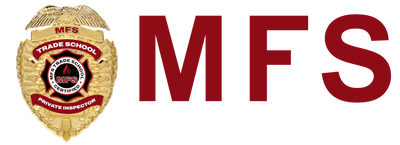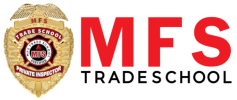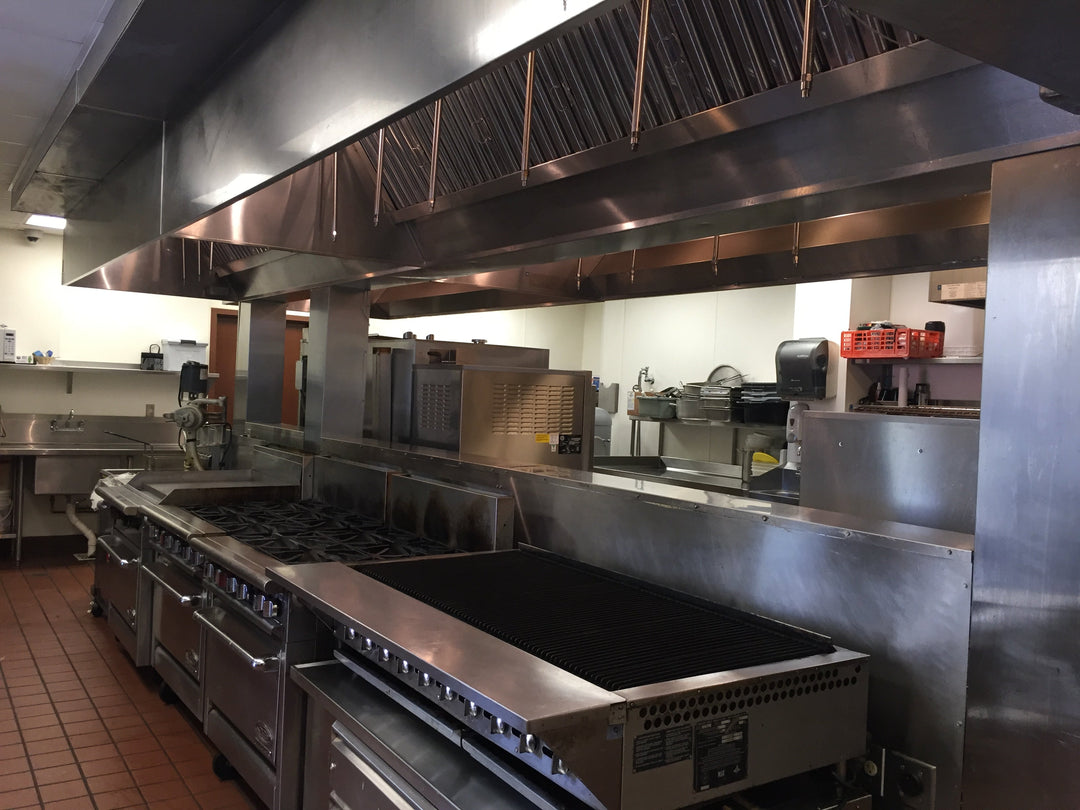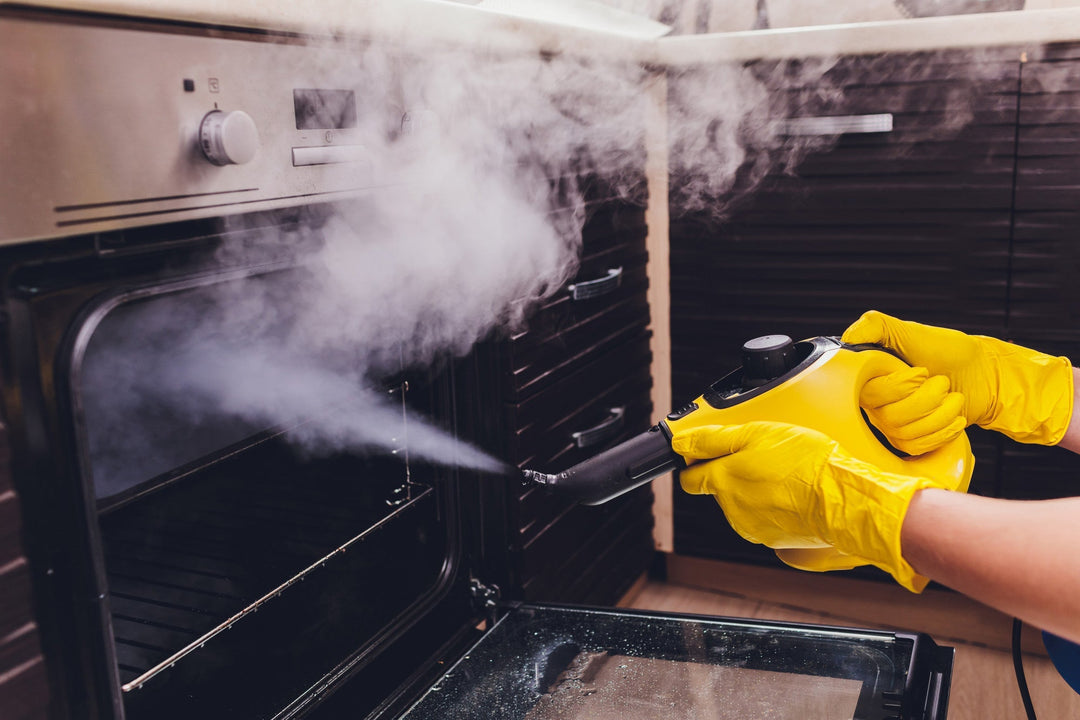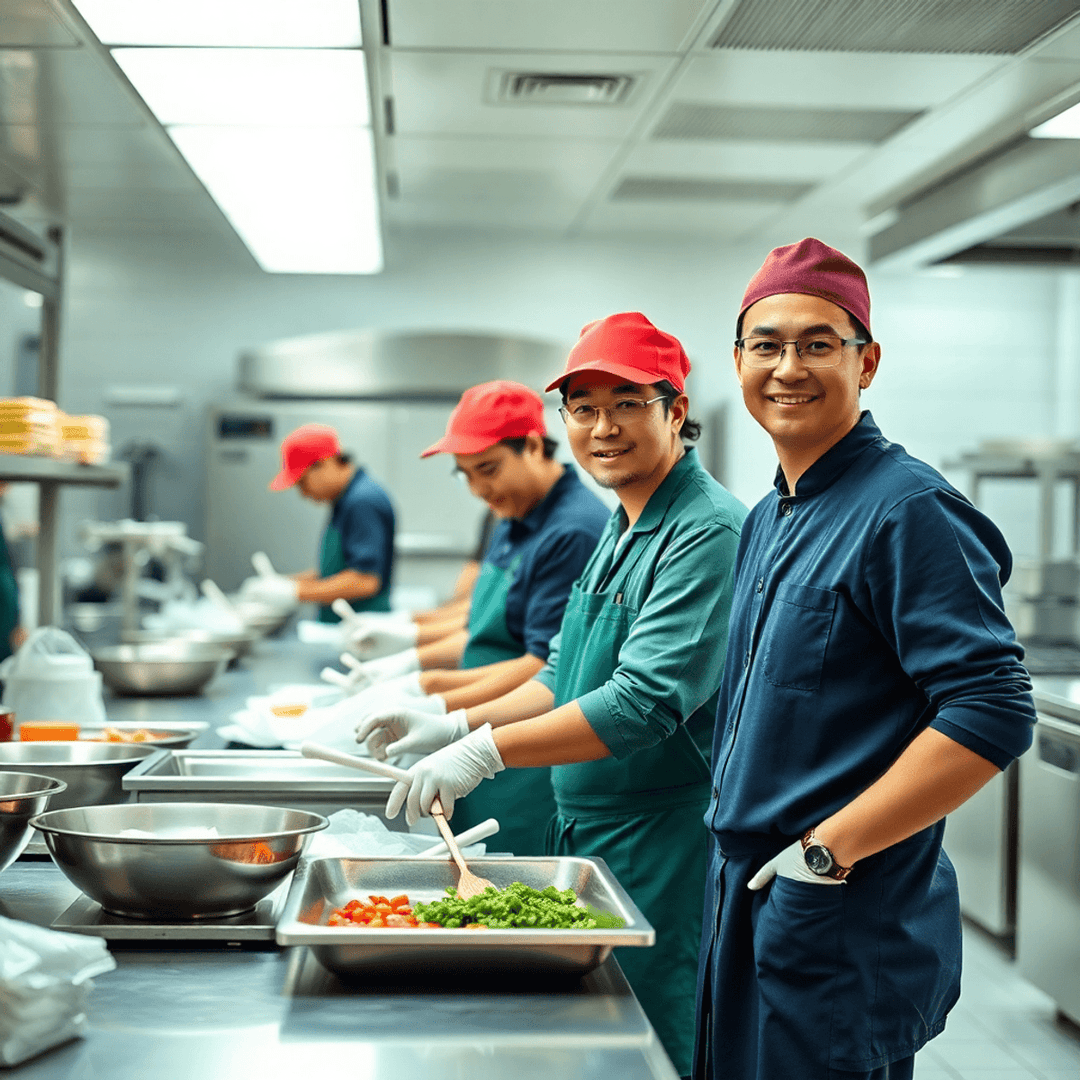Understanding NFPA Code 96 for Restaurant Cleaning
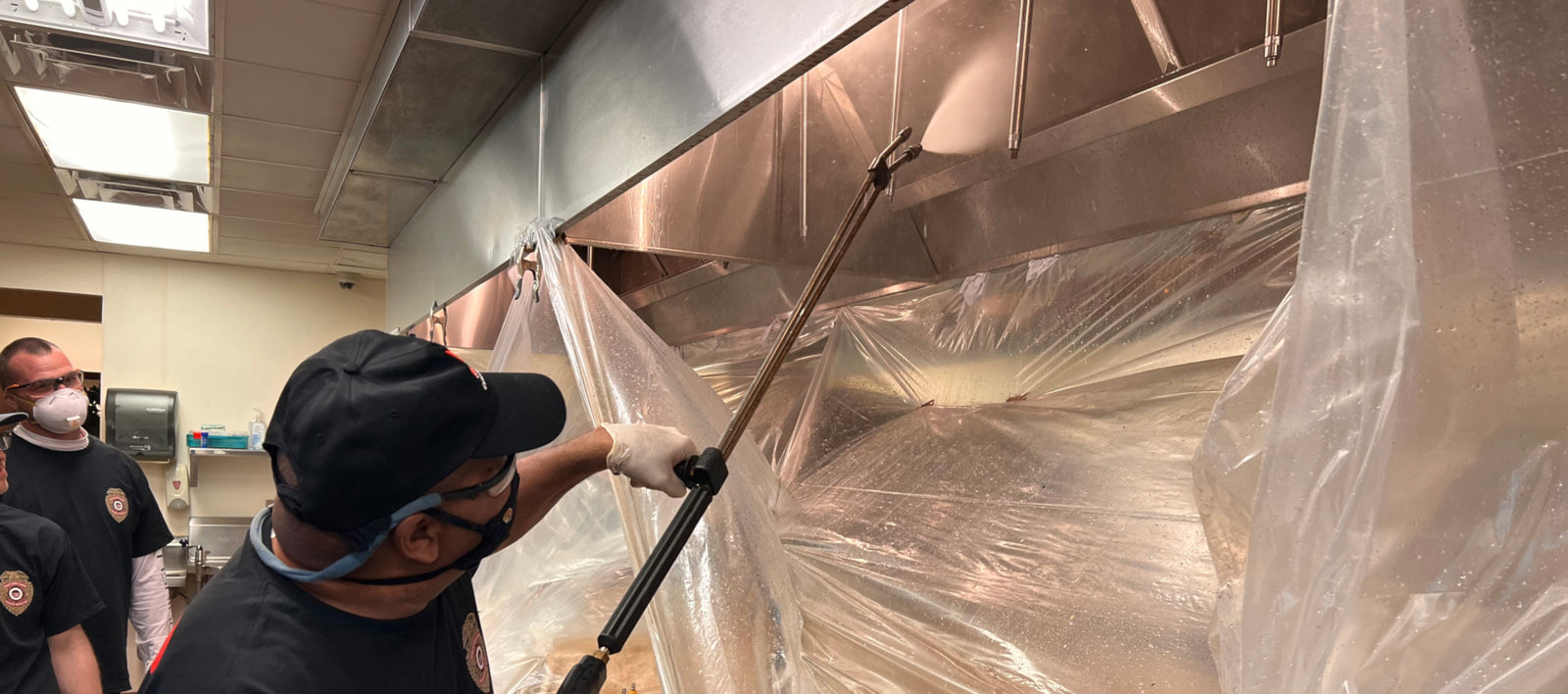
Understanding NFPA Code 96 for Restaurant Safety
The National Fire Protection Association (NFPA) 96 standard is a critical set of guidelines designed to ensure fire safety in commercial kitchens. Understanding and implementing these standards is essential for restaurant owners, managers, and staff to protect their businesses, employees, and customers from the devastating consequences of kitchen fires.
Compliance with NFPA 96 is not only a legal requirement but also a crucial step in maintaining a safe and efficient kitchen environment. Failure to adhere to these guidelines can result in severe penalties, legal liabilities, and potential loss of life and property.
In this article, we will delve into the key aspects of NFPA 96, including its importance, main components, and the steps necessary to achieve and maintain compliance. By the end of this guide, you will have a comprehensive understanding of how to ensure your restaurant meets the highest standards of fire safety and prevention.
What is NFPA 96 and Why is it Important for Restaurant Fire Safety?
NFPA 96 is the Standard for Ventilation Control and Fire Protection of Commercial Cooking Operations, developed by the National Fire Protection Association (NFPA). This comprehensive set of guidelines is designed to mitigate fire risks in commercial kitchens by addressing critical areas such as ventilation control, fire protection, equipment maintenance, and staff training.
The importance of NFPA 96 cannot be overstated: according to NFPA data, cooking equipment is the leading cause of restaurant fires, accounting for 61% of all restaurant fires between 2010 and 2014. The majority of these fires involve cooking equipment that ignites due to the buildup of grease and other flammable residues in the kitchen exhaust system.
Compliance with NFPA 96 is crucial for several reasons:
-
Fire Prevention: By adhering to the guidelines set forth in NFPA 96, restaurants can significantly reduce the risk of devastating kitchen fires. Proper ventilation control, regular cleaning of exhaust systems, and the installation of fire suppression systems all contribute to a safer cooking environment.
-
Employee and Customer Safety: A kitchen fire not only poses a threat to the building and equipment but also endangers the lives of staff and patrons. Implementing NFPA 96 standards ensures that your restaurant prioritizes the safety of everyone on the premises.
-
Legal Compliance: Many local and state fire codes incorporate NFPA 96 standards, making compliance a legal requirement. Failure to meet these standards can result in citations, fines, and even closure of your establishment.
-
Insurance Requirements: Insurance companies often require restaurants to demonstrate compliance with NFPA 96 to maintain coverage. Non-compliance may lead to higher premiums or even denial of coverage.
Investing in NFPA 96 compliance is not only a matter of safety but also a smart business decision. By prioritizing fire prevention and safety, restaurants can protect their assets, reputation, and the well-being of their employees and customers. Proper training, such as that offered at MFS Trade School Shop, can help aspiring entrepreneurs and cleaning professionals gain the knowledge and skills necessary to ensure NFPA 96 compliance in their own businesses or for their clients.
Key Components of NFPA 96 for Commercial Kitchens
Ventilation Control Requirements
Ensuring optimal air quality and safety in commercial kitchens begins with a well-designed ventilation system. These systems must effectively channel smoke and grease-laden vapors away from cooking areas to prevent hazardous conditions, which is essential for preventing workplace fires. Design considerations include the layout of ducts and the placement of hoods to maximize efficiency in capturing airborne contaminants. To maintain this efficiency, routine maintenance is crucial—cleaning hoods, ducts, and fans regularly eliminates the risk of combustible grease accumulations, thereby reducing fire hazards.
Fire Suppression Systems
Fire suppression systems are vital for immediate response to potential kitchen fires. These systems, integrated into cooking equipment, are engineered to activate automatically upon detecting excessive heat or flames. They function by releasing a suppressant agent that quickly neutralizes the fire, limiting its spread. Adhering to the manufacturer's maintenance schedule ensures that these systems remain operational, which involves regular checks for any obstructions in nozzles and verifying that system pressure is at the correct levels. Routine maintenance prevents malfunctions, assuring readiness in emergencies.
Training and Maintenance
The foundation of a secure kitchen environment is comprehensive employee training and diligent maintenance practices. Employees should receive detailed instruction on emergency protocols, the operation of fire extinguishing tools, and hands-on training for kitchen exhaust hood cleaning. Regular drills can reinforce these skills, ensuring swift and coordinated action in the event of a fire. Maintenance extends beyond fire suppression systems; it includes regular checks of all safety equipment and cooking appliances. This proactive approach ensures that all systems are functioning correctly, supporting the overall safety framework within the kitchen and aligning with NFPA 96 standards.
Kitchen Exhaust Hood Cleaning Frequency per NFPA 96
Determining the appropriate cleaning frequency for kitchen exhaust hoods under NFPA 96 is essential to maintaining a safe cooking environment, and understanding frequently asked questions about NFPA 96 compliance can help clarify specific requirements. Specific schedules are established based on the types of cooking operations, reflecting the unique demands and risks of each setting. For establishments using solid fuels such as wood or charcoal, monthly cleanings are necessary. These environments generate substantial smoke and heat, leading to rapid grease accumulation that must be addressed to prevent potential fire hazards.
In contrast, high-volume kitchens—those operating continuously or employing intensive cooking methods like wok cooking—are required to undergo quarterly cleanings. The frequency reflects the heightened risk due to sustained cooking activities that contribute to significant grease buildup. Regular maintenance ensures that the ventilation systems remain effective and safe for ongoing use.
Moderate-volume kitchens, including many standard restaurants and food service operations, generally adhere to a semi-annual schedule. These settings experience less intense usage, allowing for less frequent cleanings while still maintaining safety standards. Meanwhile, low-volume operations such as those found in community centers or seasonal venues can typically manage with annual cleanings. However, it's crucial to consider that local regulations may impose additional requirements, necessitating adjustments to these schedules to ensure full compliance with both NFPA and jurisdictional mandates.
Consequences of Non-Compliance with NFPA 96
The failure to adhere to NFPA 96 standards can lead to a multitude of adverse outcomes for commercial kitchens. One significant risk is the potential for catastrophic fire events, as highlighted in a comprehensive overview of fire safety. Without routine maintenance, grease-laden vapors can accumulate within exhaust systems, creating a hazardous environment where fires can ignite and escalate quickly. The destructive impact of such fires often extends beyond immediate physical damage, affecting the livelihood and safety of kitchen staff and patrons.
Non-compliance also invites regulatory scrutiny and potential legal action. Businesses found neglecting these safety protocols may face regulatory fines and sanctions, and in the aftermath of an incident, they may become embroiled in legal disputes. These legal challenges not only impose financial burdens but also divert critical resources away from core business functions, further destabilizing operations.
Financial implications extend into insurance considerations. Businesses that fail to meet NFPA 96 requirements are often classified as high-risk by insurers, leading to elevated insurance premiums. This added cost can strain financial resources, impacting overall profitability. Furthermore, incidents resulting from non-compliance can severely damage a business's reputation. Customers rely on safe dining establishments, and any perceived lapse in safety standards can erode consumer confidence, making it challenging to regain trust and market position.
Achieving NFPA 96 Compliance in Your Restaurant
Adhering to NFPA 96 entails a nuanced approach tailored to the specific operations of your restaurant's kitchen. Each type of culinary operation, whether it’s a bustling high-volume kitchen or a quieter, seasonal setup, requires distinct attention to safety protocols. Familiarity with these tailored requirements ensures your kitchen is safeguarded against potential hazards, aligning operational practices with safety standards.
A robust and efficient kitchen begins with the meticulous implementation of ventilation and fire suppression systems. These systems must be strategically integrated into the kitchen’s design to effectively manage the unique demands of your cooking operations. Certified professionals should handle installation to ensure compliance with NFPA 96, thereby minimizing the risk of equipment failure. Routine assessments and upkeep are vital to ensure these systems remain fully operational and responsive in critical situations.
Engaging professional services for the routine cleaning of exhaust systems and implementing proper janitorial restaurant cleaning practices are essential for maintaining a safe kitchen environment. Certified cleaning experts possess the specialized knowledge required to manage the intricacies of commercial kitchen systems, ensuring thorough removal of grease and contaminants. Adhering to a regular cleaning schedule safeguards the integrity of your kitchen’s ventilation, promoting a safer and more efficient workspace.
Equipping your staff with the knowledge and skills necessary for fire safety is a fundamental aspect of NFPA 96 compliance. Employees must be trained to recognize and respond effectively to potential fire hazards, utilizing firefighting tools appropriately. Regularly scheduled training sessions reinforce these critical skills, fostering a culture of safety and preparedness throughout your establishment.
Comprehensive documentation of all compliance-related activities is crucial for maintaining transparency and accountability. Detailed records of inspections, maintenance, and training activities demonstrate your restaurant’s commitment to upholding NFPA 96 standards. These records not only facilitate smoother audits and inspections but also serve as a roadmap for future compliance efforts, ensuring consistent adherence to safety protocols.
Partnering with Certified Kitchen Exhaust Cleaning Professionals
Aligning your business with certified kitchen exhaust cleaning professionals is essential for sustaining NFPA 96 compliance. Experts certified by the International Kitchen Exhaust Cleaning Association (IKECA) are equipped with the technical acumen required to ensure your kitchen's exhaust systems function safely and efficiently. Their certification underscores their proficiency in adhering to industry standards, guaranteeing that all cleaning activities are performed with precision and care.
These professionals bring a depth of understanding that extends beyond basic cleaning, including knowledge of virus disinfection protocols to ensure a comprehensive approach to kitchen safety. By leveraging their specialized skills, your establishment benefits from enhanced ventilation efficiency, creating a safer cooking environment. Furthermore, their familiarity with NFPA 96 regulations allows them to seamlessly integrate compliance measures into their service offerings.
In addition to technical proficiency, certified professionals provide vital documentation services necessary for regulatory compliance and insurance verification. They supply comprehensive reports detailing each cleaning session, which serve as proof of compliance during inspections. This documentation not only satisfies regulatory requirements but also facilitates smoother interactions with insurance providers, potentially influencing favorable policy conditions. Therefore, partnering with certified cleaning experts is a strategic move that supports the long-term safety and operational integrity of your commercial kitchen.
Ensuring the safety of your commercial kitchen through NFPA 96 compliance is a critical responsibility that requires ongoing attention and expertise. By partnering with certified professionals and investing in comprehensive training, you can create a culture of safety that protects your business, employees, and customers. If you're interested in learning more about how to achieve and maintain NFPA 96 compliance in your restaurant,
contact us today to request more information on our specialized training programs designed to empower you with the knowledge and skills needed to succeed in the industry.
